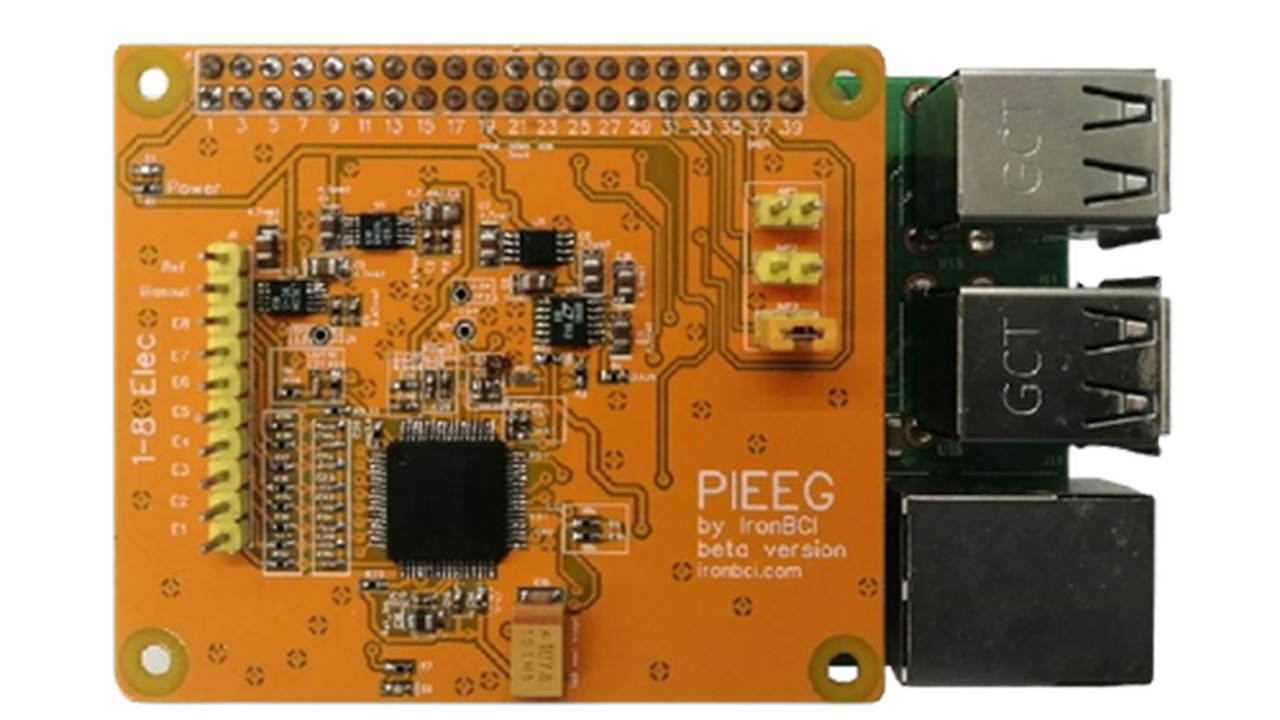Raspberry Pi Enables Open Source Brain-Computer Interface
An electroencephalography add-on board will be crowdfunding soon.
Brain-computer interfaces sound sci-fi but are in fact a reality. There are many different methods used to detect and interpret electrical activity in the human brain so that it can be used to control a computer. Usually, this is the domain of university research departments and places like Google Labs, but a paper on the arXiv open access server, by Ildar Rakhmatulin and Sebastian Volkl, proposes doing away with hyper-expensive equipment and using a Raspberry Pi instead.

Rakhmatulin, who has form in this area having designed a laser turret for shooting down mosquitos using a Raspberry Pi 3 B+ and camera, studies BCIs at Russia’s South Ural State University, while Volkl works in the fields of AI and neural networks. They came together to launch hackerBCI, which aims to offer easy access to neuroscience projects and experiments.
Their Pi project, PiEEG, uses C, C++ and Python to read up to eight real-time electroencephalography (EEG) signals, gathered from the brain by electrodes placed in a cap worn by the subject. From this, the pair have posted on GitHub use cases including controlling robots and drones. The control of exoskeletons is also among the uses suggested.
The PiEEG board is shown fitted to a Raspberry Pi 3, judging by the full-size HDMI port, as a HAT (a Pi 4 can also be used) and connects through the GPIO pins. There's some stringent requirements to be hit before it will work, including isolation from the noise generated by mains power, but luckily there's plenty of open-source software available for signal processing, which is listed in the paper.
If you're keen to start reading your brain signals with your Raspberry Pi, hackerBCI will begin crowdfunding the PiEEG soon.
Get Tom's Hardware's best news and in-depth reviews, straight to your inbox.

Ian Evenden is a UK-based news writer for Tom’s Hardware US. He’ll write about anything, but stories about Raspberry Pi and DIY robots seem to find their way to him.
-
Blatantruth I really want a brain implant that can be used to type and interact with a computer. I do not want it if someone can hack into it and give me a wetware virus or whatever unpleasant things are possible. I can't wait until we have the ability to upgrade our vision and hearing.Reply